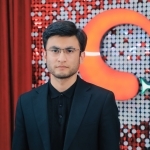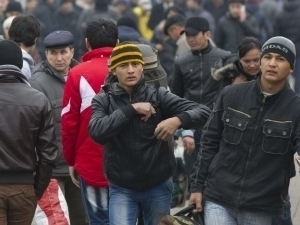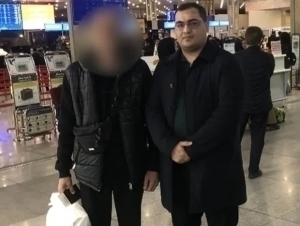Israel strikes Syria as Druze conflict escalates: Jolani faces new challenge
Review
−
04 May 2025 12333 9 minutes
Ahmad al-Shara (also known as Abu Muhammad al-Jolani) has been in power for five months. But his Turkish-backed administration is still struggling to build a central government and unify a country that has been divided for years.
After the Alawite uprising in Latakia in early March of this year, the new administration faced another crisis near the end of April. The next problem, like the first, revolves around ethnic and religious minorities. The Druze, who are close to Jews and make up about 700,000 people across Syria, are at the center of this incident. The events began on April 29. According to Lebanese and local Syrian sources, clashes broke out between Druze and Sunni armed groups in the city of Jaramana, near Damascus. At least two people were initially reported to have died in the clashes, but the Syrian government later issued an official statement on the incident, stating that a total of 13 people had been killed in the clashes. The incident then sparked protests in Israel, where more than 143,000 Druze live. The ethnic minority, who live mainly in the north of the country, has been demonstrating in the streets, blocking roads, and asking Tel Aviv to help the Druze community in Syria. It was this sequence of events that has now become the long-awaited “groundwork” for the start of Israel’s aggression against Syria. We will discuss them in more detail below.
The Conflict Flares Up
The conflict between the Druze and the armed groups began earlier this week after an audio recording was released that insulted the Prophet Muhammad. Sunni armed groups attacked them, claiming that it belonged to one of the Druze clerics. However, this version was later denied and the Syrian government confirmed that the information was false. Meanwhile, one of the Druze spiritual leaders, Hikmat al-Hijri, blamed President Ahmed al-Shara for the attack, calling it genocide and calling for international intervention to protect the Druze in southern Syria. However, at that time, the two remaining religious leaders of the Druze in Syria chose to negotiate with the government.
Israel, using such calls and the protests of the Druze living in its territory as a pretext, began to strike Syria. The most interesting thing is that this escalation began at a time when there was talk in official and unofficial Israeli circles that “the Jewish government will not rest until Syria is divided,” and calls to shoot down Turkish planes in the skies of Syria were growing. This, in turn, indicates that the Druze conflict did not happen by chance. Therefore, the versions that Israel was behind the events may be much closer to the truth.
So, after the attack on the Druze in Syria on April 30, Prime Minister Netanyahu ordered the Israeli army to launch a warning strike against extremist groups. According to the Syrian state news agency SANA, the Israeli attacks damaged villages in Damascus, Hama, and Daraya. There were deaths and injuries in the airstrikes on Damascus. Syrian officials called such a rude intervention by Israel an attempt to destabilize the country. The Israeli side, however, has been justifying the strikes on Syria by saying that they were an attack on the Druze and a signal to prevent it and protect this ethnic minority.
The most complicated point in the situation was the May 1 strike by the Israeli army on one of the targets located near the residence of Syrian President Ahmed al-Shara in Damascus. Even Netanyahu himself confirmed this. He noted that this was done as a “clear signal to Syria” and to prevent a threat to Druze groups. Israeli Defense Minister Israel Katz also spoke out and said that if the new Syrian leadership fails to prevent attacks on the Druze, Israel will respond with force.
The interim head of the Syrian administration, Ahmed al-Shara, called the Israeli airstrikes on the presidential palace in Damascus a dangerous escalation and for the first time switched to more serious rhetoric against Israel. Al-Shara accused Israel of “attempting to destabilize the country” and “worsening the security crisis.” Syria’s interim president called on the international community and Arab countries to support Syria in confronting the aggressive attacks that violate international law. This is the first “appeal” made by al-Shara to the outside world against Israeli aggression since he took power. After he captured Damascus and overthrew Assad, it was almost openly stated that Hayat Tahrir al-Sham (HTS) was supported by Turkey, and there were speculations that al-Shara's administration could become a bitter enemy of Israel. However, he completely rejected such expectations and repeatedly signaled that he had no intention of war with Israel and wanted to be a good neighbor. He even told a US congressman who visited Syria in recent days that Damascus wanted to normalize relations with Israel. However, despite all the fuss, the Netanyahu-led regime today does not like Turkey's activity in Syria. Ankara, which has been making every effort to dominate Syria in recent months, has not yet taken any practical steps.
Who Are the Druze?
The Druze are an Arabic-speaking ethnic group that adheres to a religious doctrine called "Druzeism" which split from Ismailism in the 11th century. They are spread throughout the world in varying sizes and numbers over 1 million in total. Their main countries of residence are Syria and Israel, with about 700,000 and 143,000 Druze in one and the other, respectively. The Druze in Syria live mainly in areas such as Jaramana and Sahnaya in Damascus and the Suwayda region, while those in Israel live in the north of the country, more precisely in the occupied Golan Heights. The remaining Druze live in Lebanon and Jordan. In addition, their footsteps have reached the most remote points of the earth, including Latin America and North America, and Australia. Ethnically, the Druze belong to the Arabs and were separated as a separate community after the formation of their religion, Druzeism. As noted above, the Druze religion first broke away from the Ismaili branch of Shiism and later became a completely separate religion. This religion is also based on monotheism. The Druze religion cannot be accepted. Only a person born to Druze parents can be considered a Druze. This religion became a closed religion when it emerged in the 11th century. According to their beliefs, 1000 years ago, all people had the opportunity to become Druze, but those who did not use this opportunity can no longer claim it. Therefore, this local religion is considered closed.
The Druze, like some other nationalities on earth, including the Kurds, Uyghurs and Gypsies, do not have their state. However, it is noteworthy that, according to their values, every Druze must be loyal to the state in which they live. Since the Druze are forbidden from having their state and attempting to establish it, they consider it one of their main duties to ensure the security and protection of the society in which they live. For example, after the emergence of Israel, they lived on the territory of the Jewish state, participated in all the wars waged by Tel Aviv against the Arabs, and served in the Israeli army. This situation is still reflected in the example of Syria today. In particular, on May 1, the elders of the Druze community in the Jaramana suburb, located southwest of the Syrian capital, agreed with the Syrian government to immediately hand over heavy weapons to the authorities and form law enforcement agencies from among the local population. In addition, an agreement was reached to place security checkpoints in Suwayda, where the transitional government will create regional structures subordinate to the Ministry of Defense.
Israel's Goal and the Druze Who Dislike Damascus
Behind Israel's strikes in Syria under the pretext of protecting the Druze, the goals are to undermine Turkey's dominance there and prevent the new administration from deploying security forces to the south of the capital, that is, closer to Israel. In addition, there are widespread reports that by protecting the Druze, Israel is trying to shape this ethnic group as its proxy in Syria. Because some parts of the Druze are already hostile towards al-Shara. For example, during the Alawite uprising in March, Kurds living in the north and Druze from the southern regions were among those fighting against government forces. Ahmed al-Shara has managed to reach an understanding with the Kurds, who have been described as the biggest obstacle to the unification of Syria for the past 5 months. But the Alawites and Druze are becoming a bigger problem than expected. Israeli analysts say Netanyahu’s current strategy is aimed at destroying the new Syrian government. While the plan is controversial, some officials say they hope a stable Syria will better serve Israel’s interests.
What Does Iran Say?
On May 3, Iranian Foreign Ministry spokesman Ismail Baghaei strongly condemned Israel’s attacks on civilian targets in Damascus, Latakia, Idlib, Hama, Quneitra, and Daraa. He described the attacks as an attempt to destroy Syria’s defense, economic, and infrastructure capabilities. Interestingly, Baghaei’s description of the recent attacks as an attempt to destroy an independent state could be interpreted as evidence that Iran is now determined to establish ties with the Syrian government. Baghaei reaffirmed Iran’s principled position on the need to preserve and protect Syria’s territorial integrity and national sovereignty as an independent country with a civilized people who play an influential role in the security and stability of West Asia.
“The main goal of the occupying regime is to destroy Syria’s defense, economic and infrastructural capabilities as an independent state, so that it [Israel] can pursue its harmful interests in this country and the region,” he said.
He added that Israel’s attacks on Syria are aimed at continuing the genocide in occupied Palestine and the aggression and occupation in Lebanon. The Iranian representative noted that Tel Aviv continues to target Syria’s strategic and military and civilian facilities and has occupied part of the country’s territory. He acknowledged the responsibility of all parties involved in the current situation in Syria by paving the way for Israel’s exploitation and expansionism in the Arab country. Baghai stressed that putting an end to the Israeli regime's aggressive actions against Syria requires swift and effective measures from the international community, particularly the countries of the region.
"The Organization of Islamic Cooperation should use existing mechanisms to force the UN Security Council to fulfill its duties against the Israeli regime's violations of law and peace," he said.





